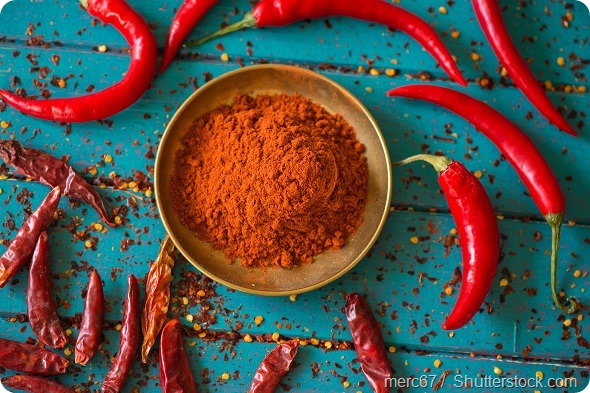People who consume spicy foods regularly throughout the week have a 14% lower risk of death than people who eat them less than once a week, suggests a study of Chinese individuals.
As reported in the BMJ, the research was conducted over a seven year period and looked at the diets of almost 500,000 people from 10 geographically diverse regions across China.
Co-author of the study Lu Qi (Brigham and Women’s Hospital, Boston, USA) says the findings are highly novel:
To the best of our knowledge, this study is the first reporting a link between spicy food intake and mortality.”
Qi and colleagues gathered dietary information on 487,375 (aged 30 to 79 years) who were enrolled in the China Kadoorie Biobank between 2004 and 2008. The participants were followed over a median of 7.2 years, during which time 11,820 deaths occurred among men and 8,404 occurred among women. Participants with a history of serious disease such as stroke, heart disease or cancer were excluded from the study and factors such as age, education, marital status and physical activity were adjusted for.

The results showed that the people who ate spicy foods once or twice a week had a 10% lower risk of death compared with those who ate the foods less than once a week, with this figure rising to 14% among those who ate spicy foods between three and seven times a week.
Chilli pepper was the most commonly used spiced reported by the study population and further analysis showed that participants who ate fresh rather than dry chilli tended to have a decreased risk of death from heart disease, diabetes and cancer.
The research also showed that the association was stronger among people who did not drink alcohol and professor of statistics at the Open University, Kevin McConway, warns:
The study gives very little encouragement for the stereotypical English pastime of going out for several pints of beer and a hot curry. The relationship between eating spicy food and a lower death rate was apparent really only in people who didn’t drink alcohol at all.”
In an accompanying editorial, Nita Forouhi (Cambridge University, UK) points out that the anti-oxidant, anti-cancer and anti-inflammatory effects of chilli and its bioactive compound capsaicin have previously been suggested to be potentially beneficial to human health.
“Future research is needed to establish whether spicy food consumption has the potential to improve health and reduce mortality directly, or if it is merely a marker of other dietary and lifestyle factors,” she says.